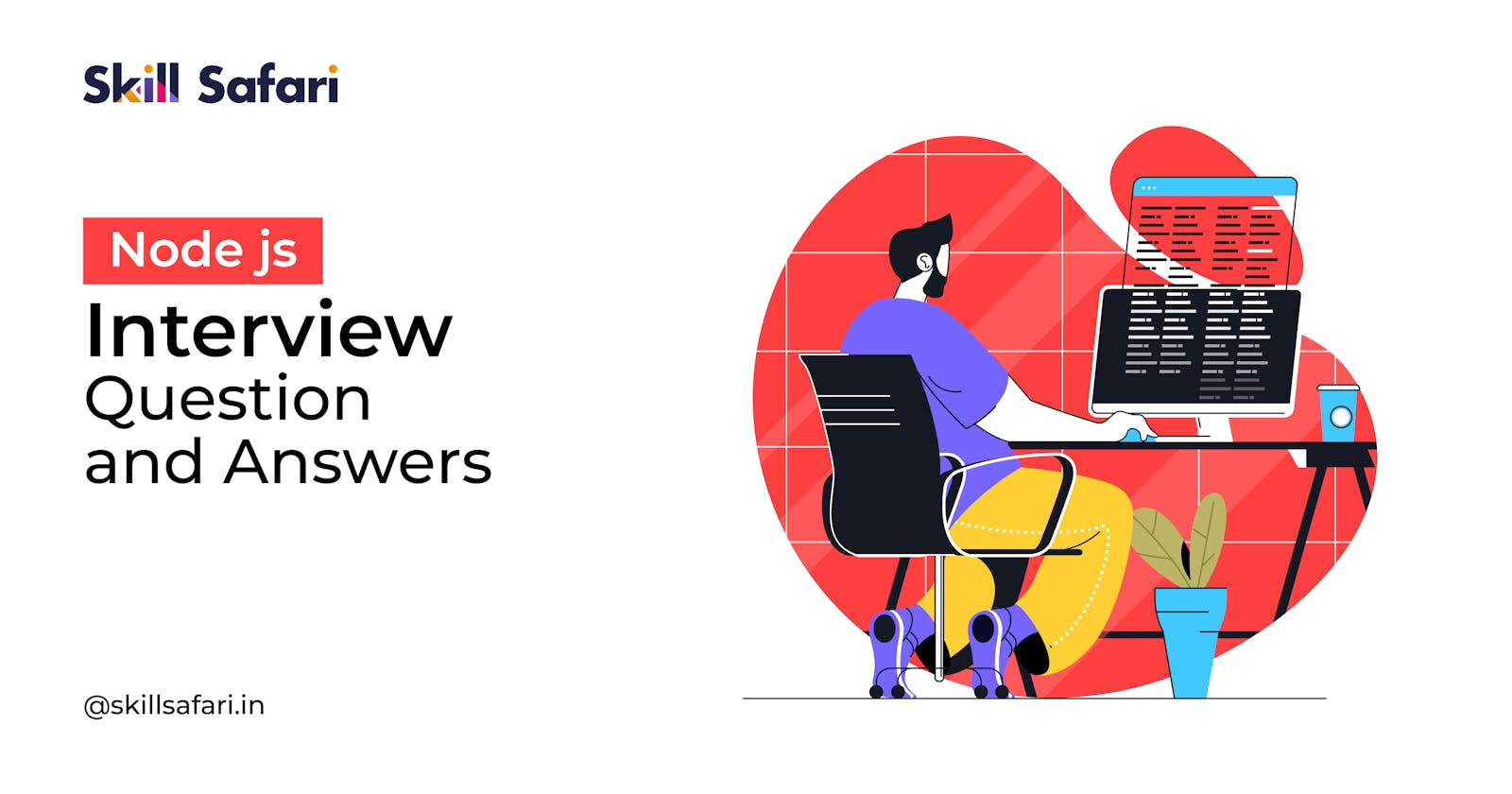Everyone in the developer community now has started to talk about Node.Js and wants to learn it and giants like Paypal, LinkedIn , Netflix, Uber and GoDaddy are based on Node.Js. It makes you shape your application according to your requirements if you are a person who is planning to go for an interview on Node.Js this article will be very helpful for you and we have specially designed it with frequently asked Node.js interview questions and answers for freshers
1. What is node Js?
Node.js is an open-source server environment which is built on Google Chrome’s JavaScript V8 Engine, Node's runtime allows the execution of JavaScript code on any machine outside a browser, It doesn’t allow it to execute on the browser, Node.js is single-threaded and the applications of Node.Js are written in JavaScript and can run on various platforms like OS X, Windows, Linux, Unix, Mac.
2. Key Features Of Node.Js?
Node has several features some of the most important features are given below:
- Asynchronous event-driven IO helps concurrent request handling
- Execution of code is Fast
- Single Threaded and Highly Scalable
- Node.js library uses JavaScript
- Node Js offers a unified programming language and data type
- It rarely blocks
- It has a great concurrency
- No Buffering.
3. How Does Node.Js Work?
A Node.js application creates a single thread. Whenever Node.js receives a request, it completes its processing task initially before moving on to the next task request. Clients send requests to the server to interact with the web application querying, Deleting, and Updating the data and retrieving incoming requests and adding those to the Event Queue the requests are then passed one by one through the Event Loop and It checks if the request does not require any external resources then event loop does it process returns the responses to the clients
For Example: In this case, we take an amazon delivery person as an example where he can deliver one product to the customer at a time, Node.js works like the same process one request at a time. Issue Occurs when one customer is not in the delivery location the delivery person can’t stop at one location and wait till the customer arrives. Instead, he will move to the next delivery and call the customer and ask him to call when he arrives at the specified delivery location. Meanwhile, the Delivery guy goes to other places for delivery. Node works like the amazon delivery person doesn’t wait for the processing of the request to complete. Instead, it attaches a callback function to it and it gets called with a function ( call from that customer ) and response.
4. What Is Callback In Node.Js?
It’s the asynchronous equivalent of a function. Node.js makes heavy use of callbacks and triggers them at the completion of tasks. All the APIs of Node.js are written in a way to support callback functions.
5. REPL In Node.Js?
REPL stands for “Read Eval Print Loop”. It accepts commands and evaluates and prints the result. It has an environment similar to Unix or a window console, in which we can enter the command and the system responds to the command with the output.
- READ – It Reads the input from the user, parses it into Js data and stores it in memory.
- EVAL– It Executes the data structure.
- PRINT – It Prints the result after the evaluation of the command.
- LOOP– It Loops the above command until the user presses Ctrl+C two times.
6. How To Avoid Callback Hell In Node.Js?
Node.js addresses it by incorporating callbacks known as a higher-order function. When a long-running process finishes its execution, Node triggers the callback by doing this approach; it can allow the code execution to continue past the longer running task. It makes the program modular and async.
7. Explain A Child_process Module In Node.Js?
It is used in parallel processing along with the event-driven model and it provides a child_process module which supports three methods to create the child process.
- exec – runs a command in the console and buffer output.
- spawn – launches a new process with the given command.
- fork – is a special case of the spawn() method to create child processes.
Conclusion :
The above are some of the commonly asked Node.Js Interview Questions and Answers for Freshers. In the Upcoming days, we will also add more Interview Questions and Answers to this blog that are prevalent in the Industry.
Also, read our new article : https://blog.skillsafari.in/road-map-to-become-an-mern-stack-developer-in-2023

